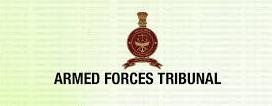Disability Pension for Primary Hypertension

Disability Pension for Primary Hypertension
Disability pension for primary hypertension remains a significant legal issue for armed forces personnel retiring after stressful service conditions nationwide.
Military service exposes personnel to continuous stress, hostile environments, irregular lifestyles, and operational pressures affecting long term cardiovascular health outcomes.
Primary hypertension frequently develops silently during service and manifests clinically after prolonged exposure to strenuous military duties conditions.
Indian courts and tribunals have consistently protected soldiers by interpreting pension rules liberally in favour of disabled veterans.
Legal Framework Governing Disability Pension
Disability pension is governed by Pension Regulations, Casualty Pensionary Awards, and judicial precedents interpreting attributability and aggravation principles.
Entitlement depends upon whether the disease arose during service or worsened due to specific conditions of military employment.
The law mandates presumption in favour of the soldier unless the authorities conclusively disprove service connection through evidence.
Attributability and Aggravation Principles for Disability Pension for Hypertension
Attributability requires simultaneous proof that disease originated during service and resulted from military service conditions directly.
Aggravation applies when preexisting or latent disease worsens due to environmental, climatic, or operational stress during service tenure.
Field areas, high altitude zones, counter insurgency operations, and extreme climates are recognised aggravating service factors legally.
Casualty Pensionary Awards 2008 and Disability Pension for Hypertension
Casualty Pensionary Awards 2008 provide detailed guidelines for accepting diseases as attributable or aggravated by military service.
Where disease causes remain unknown, presumption of entitlement operates unless rebutted by cogent medical evidence from authorities.
Guide to Medical Officers Provisions for Disability Pension for Hypertension
Guide to Medical Officers specifies hypertension entitlement assessment by distinguishing between primary and secondary hypertension clearly.
Primary hypertension may be conceded aggravated when arising during field, high altitude, operational, or prolonged afloat service.
Case of Col Vijaya Kumar B for Disability Pension for Hypertension
The Armed Forces Tribunal Kochi decided Col Vijaya Kumar B versus Union of India on 25 August 2017.
The applicant served extensively in Army and Territorial Army, including prolonged field and operational area tenures.
At Territorial Army enrollment, the officer remained in SHAPE-1 medical category without hypertension diagnosis evidence.
Release Medical Board assessed primary hypertension aggravated by service at thirty percent for life conclusively.
Despite favourable medical opinion, pension authorities wrongly rejected disability pension claim without ordering reexamination improperly.
Tribunal’s Reasoning and Findings
The Tribunal relied upon Casualty Pensionary Awards and Guide to Medical Officers provisions governing hypertension entitlement.
It accepted Medical Board reasoning citing stress and strain following recent field and CIOPS area postings.
The Tribunal emphasized that Medical Boards are expert bodies whose opinions deserve significant judicial deference always.
Supreme Court precedent in A V Damodaran affirmed that medical opinions cannot be overruled casually by administrators.
Reliance was also placed on Union of India versus Rajbir Singh regarding hypertension presumptions.
Ultimately, the Tribunal granted disability pension for primary hypertension with consequential benefits to applicant.
Impact and Significance for Disability Pension for Hypertension
This judgment strengthens protection for soldiers suffering primary hypertension after prolonged stressful military service conditions.
It reiterates that administrative authorities cannot arbitrarily deny disability pension contrary to medical board assessments.
The decision encourages consistent application of entitlement rules favouring disabled veterans across tribunals.
Only Armed Forces Law experts can help the disable soldiers in such matters.
Frequently Asked Questions
Does primary hypertension qualify for disability pension in military service?
Yes, primary hypertension qualifies when medical authorities confirm disability aggravated by service-related stress or operational conditions.
What does aggravation mean in disability pension cases?
Aggravation means military duties worsened an existing or developing disease beyond its normal natural progression.
How does the Medical Board assess hypertension entitlement?
The Medical Board evaluates service history, clinical evidence, stress exposure, and applicable entitlement rules before concluding aggravation.
Do field and high altitude postings strengthen hypertension pension claims?
Yes, postings in field, high altitude, and operational areas are aggravating service factors.
What components make up disability pension?
Disability pension consists of a service element and a disability element under military pension regulations.
Is rounding off applicable in hypertension disability pension cases?
Yes, rounding off applies when assessed disability meets minimum percentage thresholds under prevailing legal guidelines.
Can authorities reject Medical Board findings on hypertension?
Authorities cannot reject Medical Board opinions without valid medical evidence or a lawful re-examination process.
Does Territorial Army service count for hypertension aggravation?
Yes, Territorial Army service may cause stress-related aggravation of hypertension.
Are Supreme Court judgments binding on pension authorities?
Yes, pension authorities must follow Supreme Court rulings while deciding disability pension claims.
What happens if the cause of hypertension remains medically unknown?
Presumption of entitlement applies unless authorities present strong evidence disproving service connection.
What is the difference between primary and secondary hypertension?
Primary hypertension has no identifiable cause, while secondary hypertension results from another underlying medical condition.
Can a rejected disability pension claim be legally challenged?
Yes, applicants can file appeals before Armed Forces Tribunal against wrongful pension denial decisions.
Does military stress contribute to primary hypertension development?
Yes, prolonged military stress significantly increases risk of developing or worsening primary hypertension.
Does long operational service improve chances of pension approval?
Yes, extended service in stressful operational zones strengthens aggravation-based pension claims.
Should applicants seek legal assistance for disability pension cases?
Yes, experienced legal support improves success rates in disability pension litigation significantly.
